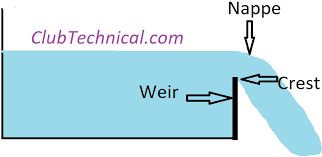AI (Artificial Intelligence) in Civil Engineering
AI (Artificial Intelligence) in Civil Engineering
Applications of AI in Civil Engineering
- Design Optimization: AI algorithms can analyze vast amounts of data to optimize the design of structures such as bridges, buildings, and roads. They can identify the most efficient materials and configurations to meet safety and performance requirements while minimizing costs.
- Project Management: AI-based project management tools can enhance project scheduling, resource allocation, and risk assessment. These systems can analyze historical project data to predict potential delays or cost overruns, allowing for proactive decision-making.
- Structural Health Monitoring: AI-powered sensors and monitoring systems can continuously assess the structural health of buildings and bridges. They can detect anomalies or signs of deterioration in real-time, allowing for timely maintenance and repairs.
- Construction Automation: AI-driven robotics and automation are used in construction to perform tasks such as bricklaying, concrete pouring, and excavation with precision and efficiency. These technologies enhance safety and productivity on construction sites.
- Traffic Management: AI is applied in traffic management systems to optimize traffic flow, reduce congestion, and improve safety. Intelligent traffic lights and real-time traffic monitoring systems rely on AI algorithms to make dynamic traffic control decisions.
- Environmental Impact Assessment: AI can analyze environmental data to assess the impact of construction projects on the environment. It can help engineers make informed decisions to minimize ecological harm.
- Geotechnical Engineering: AI is used in geotechnical engineering to analyze soil data and predict ground behaviour, aiding in the design of stable foundations for buildings and infrastructure.
- Risk Assessment: AI can assess project risks by analyzing historical data and considering various factors like weather conditions, geological data, and project complexity. This helps in making informed decisions regarding risk mitigation.
Advantages of AI in Civil Engineering
- Efficiency: AI can process large datasets and perform complex calculations much faster than humans. This speeds up design, analysis, and decision-making processes.
- Accuracy: AI algorithms can analyze data with a high degree of accuracy, reducing errors in design and construction.
- Safety: Using AI-powered robots and autonomous vehicles in construction can enhance safety by reducing the need for workers to perform dangerous tasks.
- Cost Reduction: AI can help identify cost-saving opportunities in design, construction, and maintenance, ultimately reducing project expenses.
- Predictive Maintenance: AI-driven predictive maintenance systems can prolong the lifespan of infrastructure by detecting issues early and reducing maintenance costs.
Implications and Future Trends
The integration of AI in civil engineering is not without challenges. Concerns related to data privacy, ethics, and job displacement must be addressed. Additionally, as AI continues to advance, it is expected to profoundly impact the profession, requiring civil engineers to adapt to new technologies and develop AI literacy.
In conclusion, AI is reshaping the landscape of civil engineering by improving efficiency, accuracy, and safety across various aspects of the field. As AI technologies evolve, they will play an increasingly crucial role in addressing the growing infrastructure demands of our rapidly changing world. Civil engineers who embrace these intelligent technologies will be better equipped to design and build the sustainable and resilient infrastructure of the future.



Comments
Post a Comment